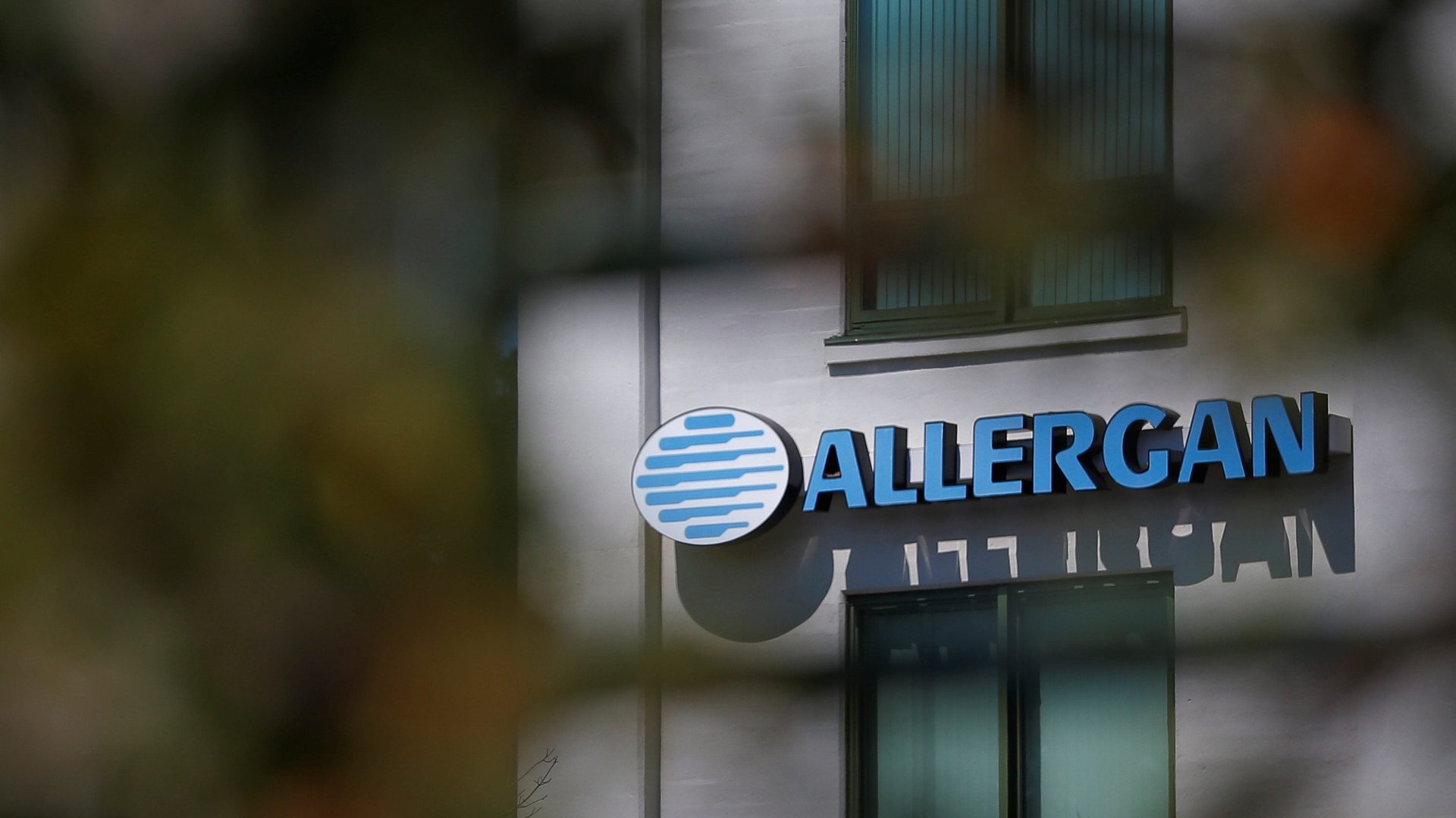America’s current patent system inhibits innovation. Here’s how to fix it
What is Allergan afraid of?


What is Allergan afraid of?
On Sept. 8, drug maker Allergan announced it would transfer its patent on a widely used eye drug, Restasis, to a Mohawk tribe—a piece of legal gymnastics designed to evade patent challenges through inter partes review (IPR). IPRs are a little discussed process created by Congress in 2011 to lessen red tape and resolve patent issues timely and efficiently. And for corporations like Allergan, these challenges pose an existential threat to its seemingly endless monopolies on key drugs.
Other companies have recognized the same threat. In the fall, the Supreme Court is expected to take a case brought by Oil States Energy Services that could hobble this obscure, but essential, part of the law that allows the government to review and overturn bad patents like the ones on Restasis. If Oil States’ case succeeds, it will ultimately hurt real competitive progress and directly impacting our ability to solve nationwide challenges like runaway drug prices and slippery patent trolls.
Six years ago, Congress passed the America Invents Act to update the US patent system. As part of the Act, a new administrative body, the Patent Trial and Appeal Board (PTAB), and procedures were created within the US Patent Office where parties could challenge and possibly overturn unmerited patents. Yet, in just a few months, the Supreme Court might reverse this nascent progress—with potentially catastrophic effects for American innovation.
At the most basic level, a patent is a government-granted monopoly established by Article 1 of the US Constitution: “the Congress shall have the power… to promote the progress of science and useful arts, by securing for limited times to authors and inventors the exclusive right to their respective writings and discoveries.” But two hundred and twenty-eight years later, our patent system is no longer operating in service of the progress of art and science, but largely in service of corporations’ bottom lines.
The patent system should serve the public by rewarding inventions—but it has been hijacked by patent trolls and pharmaceutical corporations who abuse the system by filing unmerited patents to prevent competition, or to, in effect, extort rents from legitimate businesses using obvious inventions. And once a patent is granted, companies can use frivolous tactics to extend its life—sometimes even to 40 or 50 years—and reap the spoils while locking away knowledge for a generation.
How did we get here? The US Patent and Trademark Office, with around 9,000 examiners, now reviews more than 500,000 patent applications each year–up from just 100,000 a couple of decades ago. Each week, the office grants about 5,000 new patents. While the majority of those patents are merited, some unjustified patents inevitably slip through the cracks.
Critics of these efforts–including pharmaceutical and telecommunications companies who spend hundreds of millions a year on lobbying– argue that under the Constitution, patents are like private property rights: once granted, they should not be reconsidered without a jury trial. But jury trials are often a prohibitively expensive way to challenge patents, ensuring that only commercial actors and the rich can file suit. And if a government agency like USPTO is given the power to grant patents, should it not also have the power to correct its own errors?
Dismantling the PTAB would be highly dangerous to society’s well-being and the ability to curb abuse by corporations. An unmerited patent on a life-saving drug, for example, can prevent generic competition for decades—keeping prices astronomical and preventing patients from getting treatment. And having a patent does not automatically make you an innovator— on the contrary, bad patents stifle American invention by preventing entrepreneurs and scientists from using existing knowledge to work on the new, fresh ideas that fuel our economy.
Contrary to what critics would have you believe, PTAB is far from a ‘patent death squad.’ In its first four years, PTAB has taken up just 4,500 cases—a tiny fraction of the millions of active patents. And of those, around one-third are settled out of court, and around half are found unpatentable. These reviews have helped overturn predatory patents on obvious inventions like GPS tracking and emailing and scanning documents, as well as invalidate patents on high-priced drugs, paving the way for generic competition.
Even with the PTAB, America has some of the strongest patent protections globally. In the European Union and across the world, doctors, lawyers and other experts working on behalf of the public interest are able to take up cases against junk patents at a lower cost and without the bureaucratic hurdles still in place in the United States. This makes for a more democratic system in which all can participate, instead of one where billion-dollar corporations can use their massive resources to manipulate the law for their own gain.
Instead of being paralyzed by paranoia, corporate interests and inventors should instead be welcoming programs like PTAB aimed at strengthening market competition and the value of their deserved patents. Junk patents don’t belong in the American story of innovation, ingenuity, and free market competition. We must restore integrity to the patent system so it can deliver on its Constitutional promise: to promote—not block—progress.